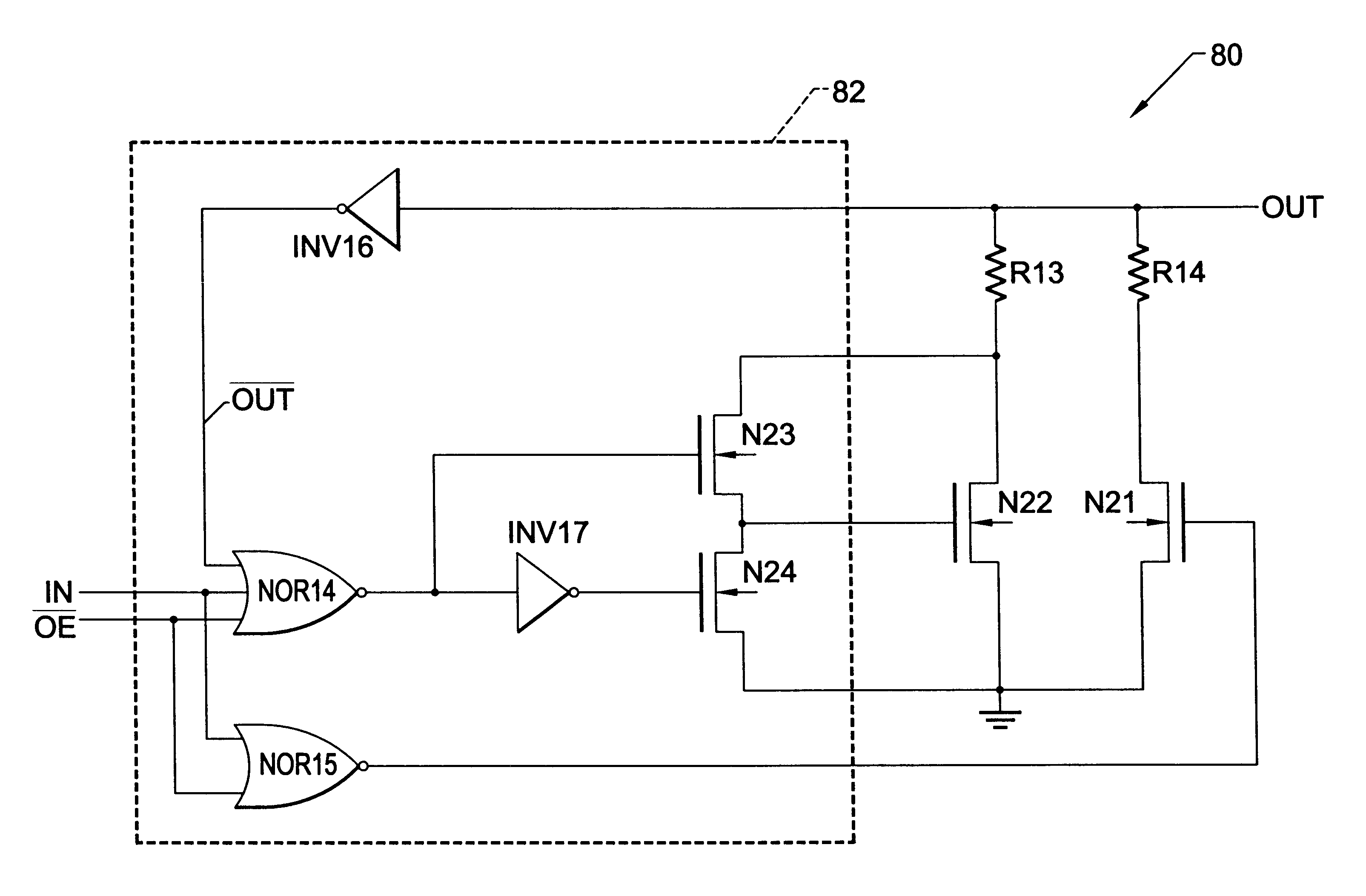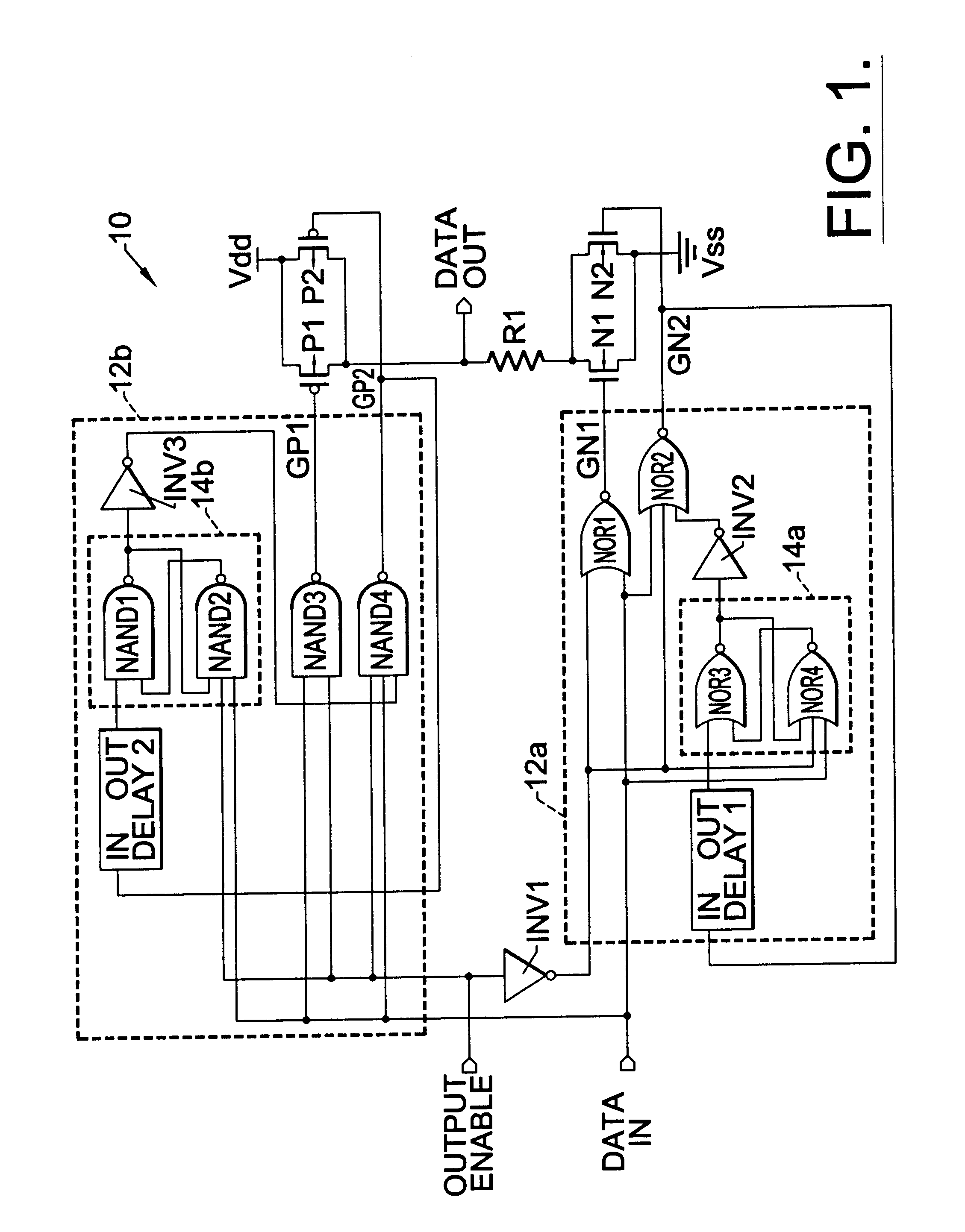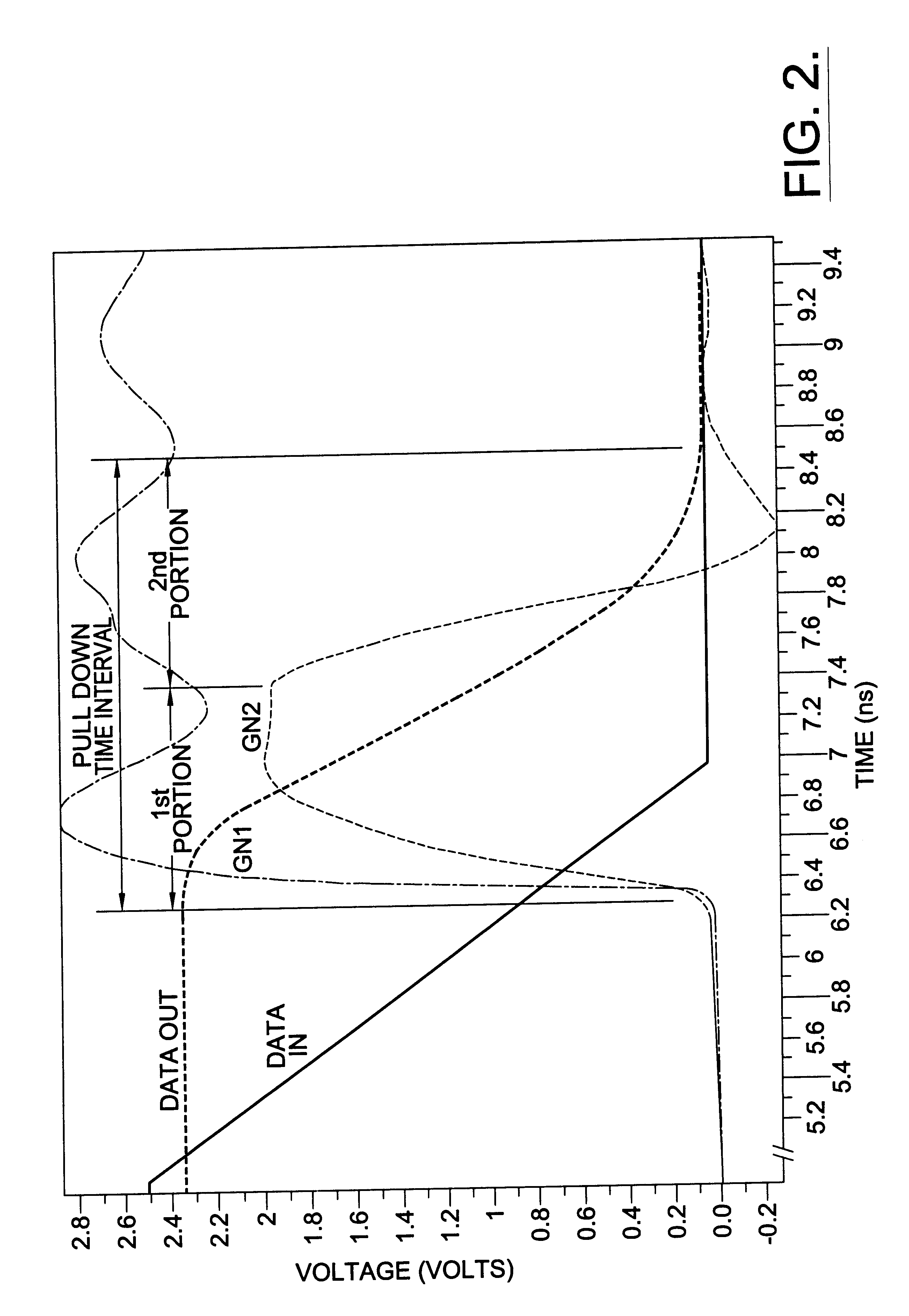Integrated circuit output buffers having control circuits therein that utilize output signal feedback to control pull-up and pull-down time intervals
a technology of output signal and control circuit, applied in logic circuits, pulse techniques, reliability increasing modifications, etc., can solve problems such as power consumption and increase of buffer cell area
- Summary
- Abstract
- Description
- Claims
- Application Information
AI Technical Summary
Benefits of technology
Problems solved by technology
Method used
Image
Examples
first embodiment
Referring now to FIGS. 1-2, an integrated circuit output buffer 10 according to the present invention passes an input signal (DATA IN) as an output signal (DATA OUT) with low propagation delay when the buffer 10 is enabled (i.e., OUTPUT ENABLE=1) and generates a high impedance output state when the buffer is disabled (OUTPUT ENABLE=0). The preferred buffer 10 includes first and second pull-down switches that are electrically connected in parallel. As illustrated, the first and second pull-down switches may comprise NMOS pull-down transistors N1 and N2. These pull-down transistors each have first terminals (drain electrodes) that are electrically connected to an output signal line (DATA OUT) by a resistor R1. This resistor R1 provides electrostatic discharge (ESD) protection and may have a value of about 10.OMEGA., for example. The second terminals (i.e., source electrodes) of the pull-down transistors N1 and N2 are also electrically connected to a first reference signal line (e.g., ...
second embodiment
Referring now to FIGS. 3-4, an integrated circuit output buffer according to the present invention includes a pull-down circuit 20a and a pull-up circuit 20b. As illustrated, the pull-down circuit 20a includes first and second pull-down switches that are electrically connected in parallel. These first and second pull-down switches may be provided by NMOS pull-down transistors N3 and N4 that are electrically connected to an output signal line (DATA OUT) by a resistor R3. This resistor R3 provides electrostatic discharge (ESD) protection and may have a value of about 10.OMEGA., for example. A pull-down control circuit 22a is also provided to control the turn-on and turn-off of the pull-down transistors N3 and N4 in such a manner to inhibit simultaneous-switching noise by reducing the degree of coupling between the output signal line (DATA OUT) and the first reference signal line Vss at the end of each pull-down transition. In particular, the pull-down control circuit 22a receives as a...
third embodiment
Referring now to FIG. 5, an integrated circuit output buffer 30 according to the present invention will be described. In this embodiment, a pull-down circuit 32, a control circuit 34 and an output signal line (DATA OUT) are provided. As illustrated, the pull-down circuit 32 may be provided by a pair of NMOS transistors (N7 and N8) that are electrically connected in parallel and an ESD protection resistor R5 that electrically couples the drain electrodes of the pair of transistors N7 and N8 to the output signal line. The ESD protection resistor R5 may have a resistance of 10 ohms, for example. The source electrodes of the pair of transistors N7 and N8 are also electrically connected to a first reference signal line (e.g., Vss). The buffer 30 also includes a preferred control circuit 34 that activates the pull-down circuit 32 by turning on both the primary and secondary pull-down transistors N7 and N8 during a leading portion of a pull-down time interval, and then turning off the seco...
PUM
 Login to View More
Login to View More Abstract
Description
Claims
Application Information
 Login to View More
Login to View More - R&D
- Intellectual Property
- Life Sciences
- Materials
- Tech Scout
- Unparalleled Data Quality
- Higher Quality Content
- 60% Fewer Hallucinations
Browse by: Latest US Patents, China's latest patents, Technical Efficacy Thesaurus, Application Domain, Technology Topic, Popular Technical Reports.
© 2025 PatSnap. All rights reserved.Legal|Privacy policy|Modern Slavery Act Transparency Statement|Sitemap|About US| Contact US: help@patsnap.com



